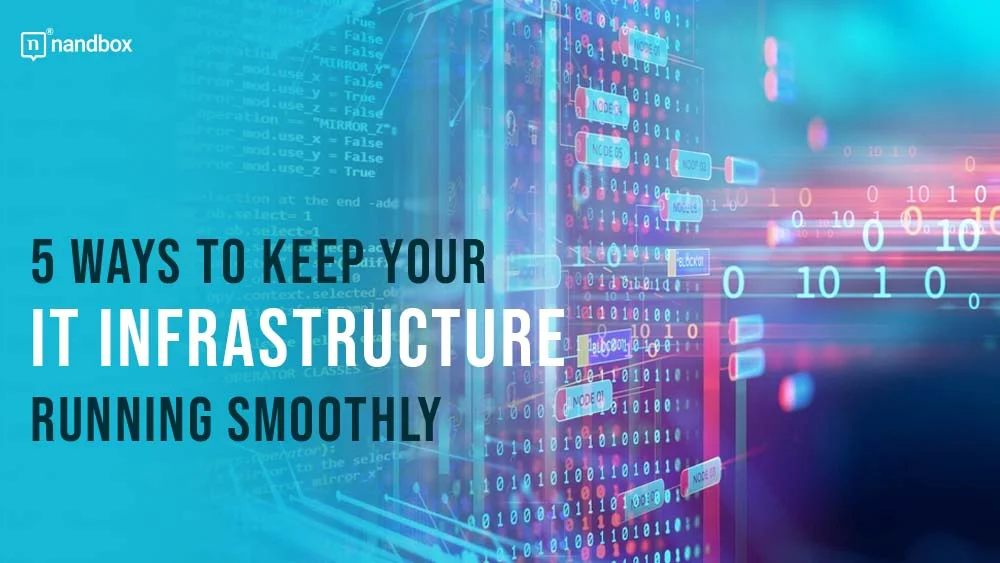In today’s fast-paced business environment, staying ahead of the curve is essential for success. Future-proofing your business infrastructure ensures that your company remains adaptable, secure, and ready to tackle challenges as they arise. With technological advancements accelerating, businesses must invest in solutions that can scale and evolve with time. Here’s a look at the top 10 infrastructure solutions to help future-proof your business.
1. Cloud Computing
Cloud computing is one of the most transformative technologies for businesses. By using cloud services, businesses can store, manage, and access data remotely, reducing the need for physical infrastructure. Cloud computing provides scalability, allowing companies to increase or decrease resources based on demand. Popular services such as AWS, Microsoft Azure, and Google Cloud offer flexibility, security, and cost-efficiency, making it easier for businesses to adapt to future needs.
2. Cybersecurity Infrastructure
With cyberattacks becoming more sophisticated, robust cybersecurity is a necessity. Future-proofing your business means safeguarding your data, networks, and intellectual property. Implementing multi-layered security systems, including firewalls, encryption, and intrusion detection systems, can protect your business from evolving threats. Regular updates and employee training are also vital in maintaining a secure infrastructure.
3. Artificial Intelligence (AI) and Automation
AI and automation are transforming how businesses operate. From chatbots providing customer support to machine learning models predicting market trends, AI offers immense potential for improving efficiency and decision-making. Incorporating AI and automation into your infrastructure will streamline operations, reduce costs, and increase productivity. As AI technology evolves, businesses can leverage it to remain competitive in an increasingly data-driven world.
4. Internet of Things (IoT)
The IoT is creating interconnected networks of devices that communicate with each other. For businesses, IoT can optimize operations, improve customer experiences, and drive innovation. Whether it’s using smart sensors to track inventory, monitor equipment, or gather real-time data for decision-making, integrating IoT devices into your business infrastructure can provide valuable insights and enhance efficiency.
5. Hybrid Work Solutions
The shift toward remote and hybrid work is one of the most significant changes in the modern workplace. To future-proof your business, it’s essential to have infrastructure that supports flexible working arrangements. Solutions like virtual private networks (VPNs), cloud collaboration tools (e.g., Microsoft Teams, Slack), and secure access to company resources will enable employees to work from anywhere while maintaining productivity and security.
6. 5G Connectivity
As 5G networks become more widespread, businesses can take advantage of faster and more reliable internet speeds. This will revolutionize everything from video conferencing to data-heavy applications. For industries that rely on real-time communication, such as healthcare or manufacturing, 5G can greatly enhance operational efficiency and the customer experience. Investing in 5G-ready infrastructure will position your business for growth in a hyper-connected world.
7. Edge Computing
Edge computing complements cloud computing by processing data closer to where it is generated. This reduces latency, improves speed, and minimizes the load on central servers. In industries like manufacturing, transportation, and healthcare, where real-time data processing is critical, edge computing can improve decision-making and enable faster responses. Incorporating edge computing into your infrastructure helps ensure your business can handle the demands of the future.
8. Data Analytics and Business Intelligence (BI) Tools
To make informed decisions, businesses need access to accurate and real-time data. Integrating data analytics and BI tools into your infrastructure allows you to gather insights that drive strategy. By leveraging tools like Tableau, Power BI, or custom-built dashboards, businesses can monitor performance, identify trends, and predict future opportunities. Data-driven decisions are crucial for staying competitive in a fast-changing market.
9. Scalable Network Infrastructure
A flexible and scalable network is critical for handling increased traffic, new applications, and growing business demands. Software-defined networking (SDN) enables businesses to manage network traffic more efficiently, allowing for adjustments based on changing needs. By future-proofing your network infrastructure with scalable solutions, businesses can support the growth of their operations without major disruptions.
10. Sustainable and Green Infrastructure
As businesses face increasing pressure to adopt environmentally friendly practices, sustainable infrastructure is becoming essential. This includes using energy-efficient equipment, optimizing resource usage, and reducing waste. Green data centers, for example, are designed to minimize energy consumption while maximizing performance. Future-proofing your business with sustainable practices not only helps the environment but also attracts customers who prioritize eco-conscious brands.
Conclusion
Future-proofing your business requires a strategic approach that incorporates the right infrastructure solutions. By adopting cloud computing, enhancing cybersecurity, integrating AI and IoT, and investing in scalable network infrastructure, you’ll be well-equipped to tackle the challenges of tomorrow. Additionally, embracing hybrid work solutions, 5G connectivity, and sustainable practices will ensure your business remains agile and adaptable in an ever-evolving landscape. The key is to stay informed, invest wisely, and remain open to innovation.
